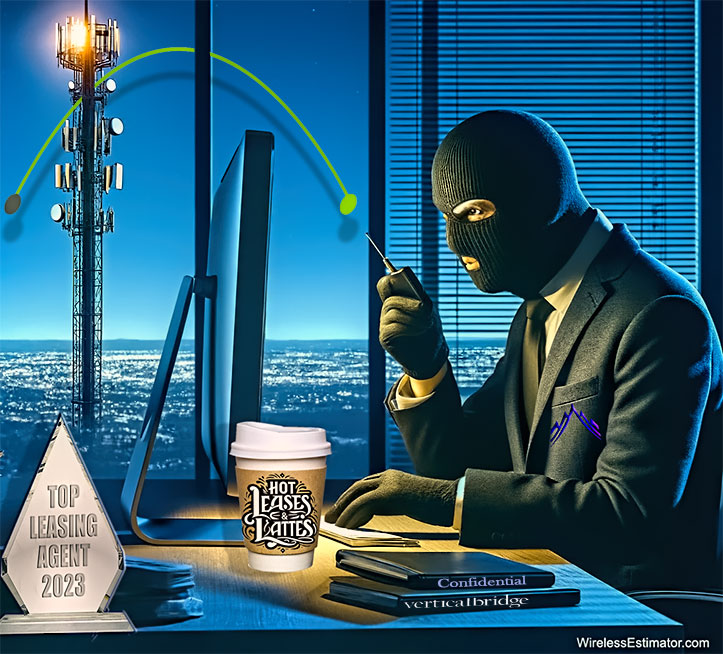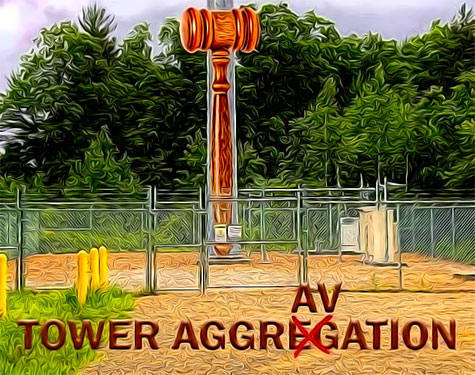
Everest Infrastructure is asking the Western District of Pennsylvania court to dismiss a lawsuit brought by Vertical Bridge because Vertical Bridge’s claims of trade secret appropriation lack merit because they are based on a hypothetical scheme that has never occurred.
In an April 3, 2024, Western District of Pennsylvania court filing, Everest Infrastructure Partners moved to dismiss an amended complaint filed by Vertical Bridge, arguing that the trade secrets Everest is accused of stealing and benefitting from were not secrets.

ALTHOUGH ALMOST ALL MAJOR TOWERCOS BUY LEASES held by their competitors, Vertical Bridge claims that Everest Infrastructure Partners is using proprietary confidential trade secret-protected pricing terms to do so. That information was provided to Everest by the landowner, Vertical Bridge alleges, who was aware that they were under a confidentiality agreement with Vertical Bridge to not disclose any terms.
Vertical Bridge filed a lawsuit against competitor Everest last June, alleging that it ran an unfair “multi-million dollar scheme to unlawfully improve its market share” at Vertical Bridge’s expense through trade secret misappropriation, interfering with existing contractual relations and false advertising.
Everest’s current motion challenges the basis of Vertical Bridge’s accusations centered around the confidentiality of rental terms with their landlords. Everest’s defense hinges on the claim that these terms cannot be considered trade secrets if they were openly known and shared by landlords, who had every incentive to use this information for better deals.
Everest’s memorandum further argues that Vertical Bridge’s claims lack merit as they are based on a hypothetical scheme that has never occurred.
According to Everest, Vertical Bridge still needs to provide evidence that their alleged sequence of events, including Everest making lofty promises to landlords for financial gains despite an inability to follow through, has occurred.
Furthermore, Everest contests Vertical Bridge’s claim of having suffered due to false statements, suggesting that all financial propositions made to landlords are not misleading but bona fide business offers.
Everest stated in its memorandum that “Vertical Bridge’s Lanham Act claim should be dismissed because the only statement by Everest alleged in the amended complaint is a conditional promise to pay landlords the greater of either (1) 50% of Everest’s revenue from any tenant . . . or (2) $30,000.’ That does not contain any ‘false or misleading statement of fact’ or ‘false or misleading representation of fact’ as is required by the statute.”
In its lawsuit, Vertical Bridge, the tower arm of DigitalBridge, is requesting that Everest provide an accounting of all sums earned from its unlawful actions and having the court enjoin them from interfering with existing and prospective contractual relationships with tower site landlords. They’re also seeking punitive damages and lost profits.
Everest said Vertical Bridge’s amended complaint filed on February 14, 2024, alleges that Everest makes large lump sum buyout offers to Vertical Bridge’s landlords, knowing they will never make a return on the investment, but the aggregator will have the opportunity to recoup its initial payment to the landlord and earn excess revenue from Vertical Bridge.
Vertical Bridge claims that Everest has acquired multiple contracts containing confidential information and ignored the trade secret protections it had in place. It used that information to structure highly competitive offers specifically tailored to the landlord, which would “damage Vertical Bridge’s reputation with landlords and tenants.”
Everest’s legal team is pushing for a complete dismissal of the case, arguing that the fundamental elements of the trade secret claims and the alleged misleading practices are unfounded.
















